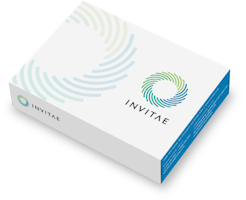
Invitae Hereditary Breast Cancer STAT Panel
Test code: 50001 •
Fast turnaround
This test has a faster turnaround time than most Invitae panels.
Test description
The Invitae Hereditary Breast Cancer STAT Panel includes well-established genes that are associated with a significantly increased risk of developing breast cancer, and for which there are medically actionable, published, evidence-based management and risk-reduction options. Accelerated turnaround time (TAT) is needed because physicians and patients often want to make surgical and management decisions as quickly as possible. Individuals with a pathogenic variant in one of these genes may have an increased risk of developing another breast cancer and may choose more aggressive surgery and/or different treatment options based on genetic testing results. Identification of a disease-causing variant may also guide testing and management of at-risk relatives.
Given clinical overlap of hereditary breast cancer conditions, broad panel testing allows for an efficient evaluation of several potential genes based on a single clinical indication. Some genes in this test may also be associated with additional unrelated conditions, which are not included in the list of disorders tested. Genetic testing of these genes may help confirm a clinical diagnosis, help predict disease prognosis and progression, facilitate early detection of symptoms, inform family planning and genetic counseling, or promote enrollment in clinical trials.
This test is specifically designed for heritable germline mutations and is not appropriate for the detection of somatic mutations in tumor tissue.
Ordering information
Turnaround time:
5–12 calendar days (7 days on average)New York approved:
YesPreferred specimen:
3mL whole blood in a purple-top EDTA tube (K2EDTA or K3EDTA)Alternate specimens:
Saliva. Assisted saliva and gDNA are not acceptedLearn more about specimen requirementsRequest a specimen collection kitClinical description
To view the complete clinical description of this panel, click here.
Assay information
Invitae is a College of American Pathologists (CAP)-accredited and Clinical Laboratory Improvement Amendments (CLIA)-certified clinical diagnostic laboratory performing full-gene sequencing and deletion/duplication analysis using next-generation sequencing technology (NGS).
Our sequence analysis covers clinically important regions of each gene, including coding exons and 10 to 20 base pairs of adjacent intronic sequence on either side of the coding exons in the transcript listed below, depending on the specific gene or test. In addition, the analysis covers select non-coding variants. Any variants that fall outside these regions are not analyzed. Any limitations in the analysis of these genes will be listed on the report. Contact client services with any questions.
Based on validation study results, this assay achieves >99% analytical sensitivity and specificity for single nucleotide variants, insertions and deletions <15bp in length, and exon-level deletions and duplications. Invitae's methods also detect insertions and deletions larger than 15bp but smaller than a full exon but sensitivity for these may be marginally reduced. Invitae’s deletion/duplication analysis determines copy number at a single exon resolution at virtually all targeted exons. However, in rare situations, single-exon copy number events may not be analyzed due to inherent sequence properties or isolated reduction in data quality. Certain types of variants, such as structural rearrangements (e.g. inversions, gene conversion events, translocations, etc.) or variants embedded in sequence with complex architecture (e.g. short tandem repeats or segmental duplications), may not be detected. Additionally, it may not be possible to fully resolve certain details about variants, such as mosaicism, phasing, or mapping ambiguity. Unless explicitly guaranteed, sequence changes in the promoter, non-coding exons, and other non-coding regions are not covered by this assay. Please consult the test definition on our website for details regarding regions or types of variants that are covered or excluded for this test. This report reflects the analysis of an extracted genomic DNA sample. In very rare cases, (circulating hematolymphoid neoplasm, bone marrow transplant, recent blood transfusion) the analyzed DNA may not represent the patient's constitutional genome.
You can customize this test by clicking genes to remove them.
Primary panel
These genes can be added to the Invitae Hereditary Breast Cancer STAT Panel at no additional charge with the same turnaround time.
Question about billing?
Find answers